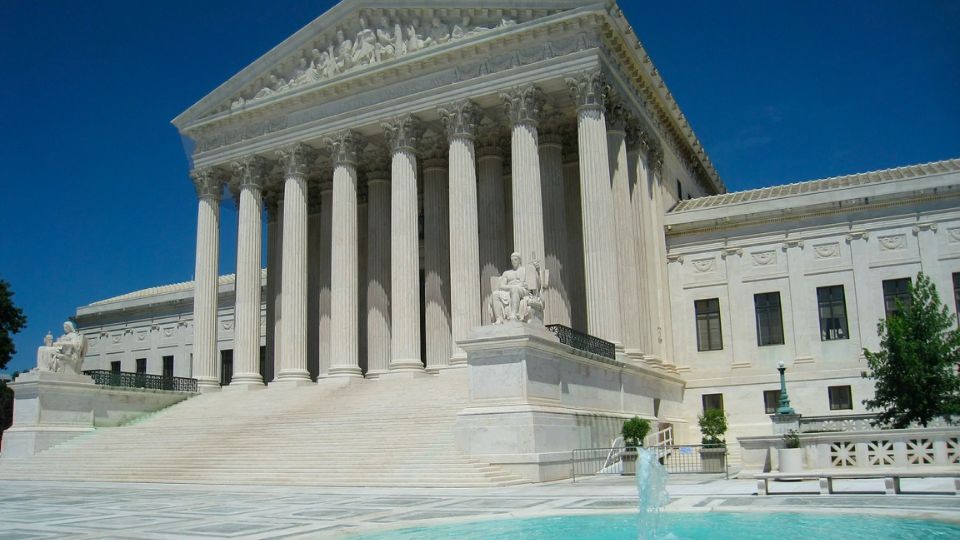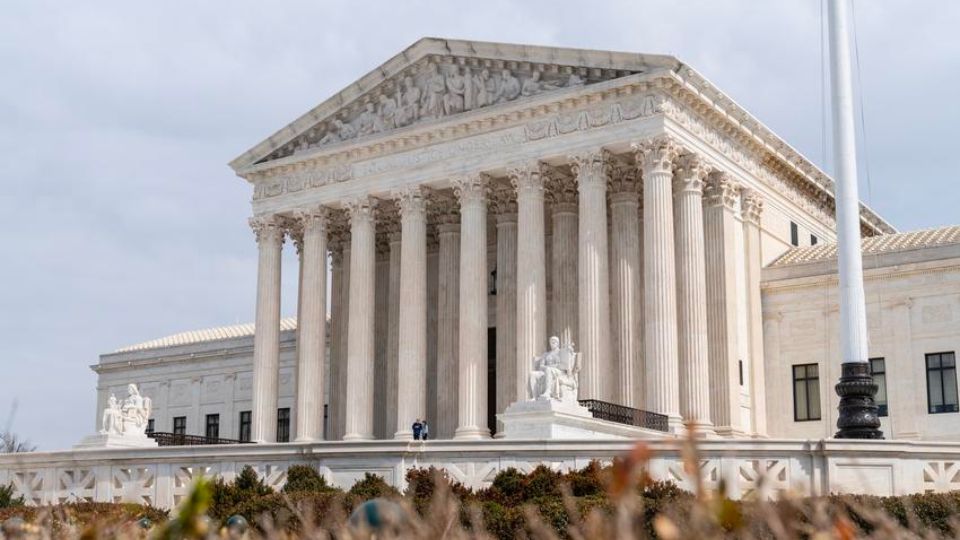A property north of Houston, owned by Richie DeVillier’s family for generations, recently experienced an unfortunate turn of events due to the state’s revamp of Interstate 10. Despite its history of never flooding, the property was not spared from the consequences of this infrastructure project.
A rice farm in Texas experienced flooding twice, once during Hurricane Harvey and again during Tropical Storm Imelda. A property near the East Texas coast experiences an annual recurrence of significant weather, resulting in substantial damage to its crops and livestock. As a result, the property now transforms into a lake each time there is significant weather.
A lawsuit filed by DeVillier against Texas in 2020 has reached the U.S. Supreme Court, where justices recently heard arguments regarding his eligibility to seek federal relief.
According to the U.S. Fifth Amendment, governments are allowed to acquire private property, but they are required to provide fair compensation for it. DeVillier, along with other property owners in Chambers County, is claiming that the flooding, caused by the state’s actions, is a violation of private property rights. Dan Charest, the original attorney who represented the property owners in state court, stated that the state is arguing that it should not be required to pay because it did not have any intention of taking the property.
The arguments presented on Tuesday centered around the debate of whether federal or state courts were the appropriate jurisdiction for the case. According to Charest, the recent ruling by the Supreme Court is expected to have a wide-reaching impact on the interpretation of the Fifth Amendment and its implications for the entire nation.
According to him, if the Supreme Court rules in favor of the landowners, it has the potential to reshape the definition of property seizure by a state and establish a benchmark for fair compensation to property owners. If the court rules in favor of the state, it could potentially expand states’ authority to limit or remove compensation for landowners whose property is seized. After the hearing, Robert McNamara, an attorney from the Institute of Justice, expressed optimism that Texas landowners would come out on top, regardless of the final decision.
Also Read: Evidence in Samantha Woll Murder Unveiled, Blood-Stained Jacket and Phone Location Disclosed
According to the speaker, a ruling in favor of the plaintiffs by the Supreme Court would strengthen their position in the lower federal courts. On the other hand, if the justices side with the state, the case would be sent back to state court. State attorneys have expressed their willingness to accept an amended case that addresses some of their concerns without any opposition.

“Whatever the outcome in court, we have already achieved victory in this case,” stated McNamara. In Tuesday’s proceedings, the focus was not on whether Texas should provide compensation to the landowners. This matter will be further discussed and debated in lower courts. In a significant development, the Supreme Court convened a hearing in response to the state’s plea to address the matter in federal court rather than state court.
According to Aaron Lloyd Nielson of the Texas Attorney General’s Office, the U.S. Constitution mandates compensation for landowners whose property is taken by the government. However, Nielson points out that the Constitution does not specify the method by which governments should provide this compensation. As a result, the state has the authority to determine the process for handling these claims. In addition, he claimed that the petitioners did not utilize the proper channels outlined in the Texas constitution to assert their claim.
Charest said that the petitioners did file the case along with the state’s rules. Nielson said that Texas wanted the case to be heard at the federal level because the U.S. Supreme Court hears a lot of cases like this.
But the state also said that the case shouldn’t be heard in federal courts because Texas has its own way for landowners to get paid for property taken by the government. This was an argument that some judges found confusing. CEO of the Supreme Court John Roberts said, “Well, isn’t that a Catch-22?”
Justice Sonia Sotomayor said this argument seemed like a bait-and-switch because the state sent the case back to federal court but then told the claimants they needed to go to state court to get help. It looks like this case is made up because the plaintiffs did everything that Texas law said they had to do, she said.
McNamara said the landowners had no other choice but to file, since that was the right thing to do under Texas law and the state picked the building. He said that Texas “chosen to take the case to federal court and then try to take away these people’s federal constitutional rights.”
Nielson said that the state would not fight the plaintiffs if they changed their original lawsuit, which is still in state court, to include more language that would address the state’s concerns.



Leave a Reply